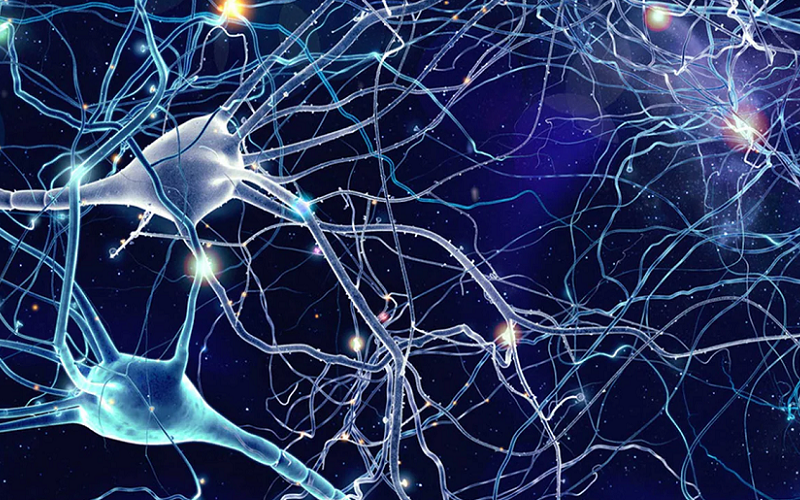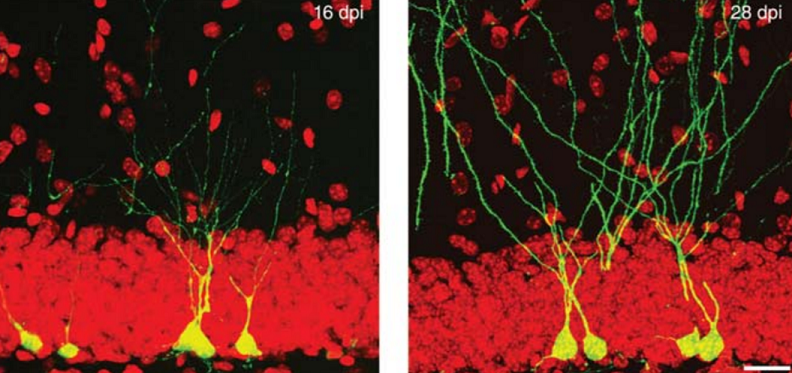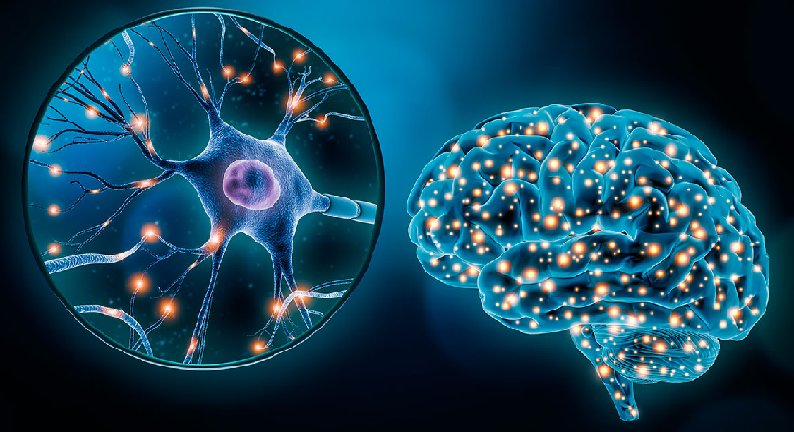
For decades, it was widely believed that the adult human brain was incapable of producing new neurons. However, recent groundbreaking research has revealed the remarkable potential for adult neurogenesis, or the birth of new brain cells, throughout our lives. This hidden power not only challenges our previous understanding of brain development, but also presents exciting possibilities for cognitive enhancement, stress resilience, and recovery from injury.
Contents
What Is Neurogenesis?
Neurogenesis is the process through which new neurons, or nerve cells, are generated in the brain. These neurons play an essential role in maintaining brain functions such as learning, memory, and emotional regulation. To better understand the concept of neurogenesis, let’s take a look at its history and the key brain areas involved.
Brief History of Neurogenesis Research
Historically, it was believed that the human brain stopped producing new neurons after a certain age. However, this notion began to change in the 1960s when the first evidence of adult neurogenesis emerged. In the following decades, further studies confirmed that new neurons could indeed be produced in specific regions of the adult mammalian brain, including humans. This groundbreaking discovery shifted the scientific community’s understanding of brain development and plasticity.
Differences Between Adult and Infant Neurogenesis
During infancy, neurogenesis occurs at a rapid pace, laying the foundation for the brain’s complex network of neural connections. As we age, the rate of neurogenesis decreases; however, it still continues throughout adulthood, albeit at a slower pace. Adult neurogenesis is more focused and occurs primarily in specific brain regions, playing a role in maintaining brain health, adapting to new experiences, and preserving cognitive functions.
Key Brain Areas Involved in Adult Neurogenesis
Two primary brain regions have been identified as sites of adult neurogenesis: the hippocampus and the olfactory bulb. The hippocampus, a crucial structure for learning and memory, has garnered much attention due to its role in generating new neurons that contribute to cognitive flexibility and emotional regulation. In contrast, the olfactory bulb, responsible for our sense of smell, exhibits a lower rate of neurogenesis, but it still contributes to our ability to distinguish and remember different odors.

The Benefits of Adult Neurogenesis
The discovery of adult neurogenesis has opened up new avenues of research and understanding of the human brain. As scientists continue to explore the intricacies of this phenomenon, numerous benefits associated with adult neurogenesis have been identified. Let’s take a closer look at some of these advantages.
Memory Enhancement and Cognitive Flexibility
One of the primary benefits of adult neurogenesis is its contribution to memory enhancement and cognitive flexibility [1]. The hippocampus, where most adult neurogenesis occurs, plays a critical role in learning and memory formation. The generation of new neurons in this region helps maintain cognitive functions, allowing the brain to adapt to new experiences and information. This plasticity is essential for creating and strengthening neural connections, which in turn supports memory consolidation and the ability to switch between tasks or thought patterns.
Role in Stress Resilience and Emotional Regulation
Adult neurogenesis has also been linked to stress resilience and emotional regulation [2]. Research suggests that the production of new neurons in the hippocampus can help the brain cope with stress and recover from its negative effects. This process appears to counteract stress-induced damage to existing neurons and promote more adaptive responses to future stressors. Furthermore, adult neurogenesis has been associated with the regulation of mood and emotions, with evidence suggesting that it may contribute to the therapeutic effects of certain antidepressant medications.
Recovery From Brain Injury and Neurodegenerative Diseases
Another promising benefit of adult neurogenesis lies in its potential to support recovery from brain injury and neurodegenerative diseases [3]. The generation of new neurons may help the brain compensate for the loss of function resulting from injury or disease, such as stroke or Alzheimer’s. While the exact mechanisms are not yet fully understood, preliminary research indicates that promoting adult neurogenesis could contribute to the development of novel treatments and interventions aimed at enhancing brain repair and regeneration.
Factors that Influence Adult Neurogenesis
While the process of adult neurogenesis is a natural and ongoing phenomenon, various factors can either promote or hinder the generation of new neurons. Understanding these factors is essential for optimizing brain health and harnessing the full potential of adult neurogenesis. Here, we explore some of the critical factors that influence the process.
Age and Genetics
Age is a significant factor influencing adult neurogenesis, with the rate of new neuron production declining as we grow older [4]. Although this decline is a natural part of the aging process, it varies between individuals, suggesting that genetic factors may play a role in determining the rate of neurogenesis. Some genes have been identified as potential regulators of adult neurogenesis, but further research is needed to better understand the complex interplay between age, genetics, and brain plasticity.
Lifestyle Factors (Diet, Sleep, Exercise)
Lifestyle choices can have a substantial impact on adult neurogenesis [5]. A balanced and nutritious diet, regular exercise, and adequate sleep all contribute to the promotion of new neuron generation. For instance, studies have shown that physical activity can increase neurogenesis, particularly in the hippocampus, leading to improved learning and memory. Similarly, a healthy diet rich in antioxidants, omega-3 fatty acids, and B vitamins supports brain health and may promote the production of new neurons. Lastly, sleep is essential for maintaining cognitive function, and evidence suggests that it may also play a role in regulating adult neurogenesis.
Environmental Factors (Stress, Toxins, Enriched Environment)
Environmental factors can also influence adult neurogenesis, either positively or negatively [6]. Chronic stress, for example, has been shown to reduce neurogenesis, particularly in the hippocampus, and contribute to cognitive decline and mood disorders. Exposure to environmental toxins may also hinder the process by damaging existing neurons and impeding the production of new ones. On the other hand, an enriched environment characterized by social interaction, mental stimulation, and novel experiences can boost neurogenesis and support cognitive function.

Strategies to Promote Adult Neurogenesis
Now that we understand the factors influencing adult neurogenesis, we can explore practical strategies to stimulate this process and optimize brain health. Here are some evidence-based approaches to promote the generation of new neurons in your brain.
Nutritional Support
A healthy and balanced diet can significantly impact adult neurogenesis. Some key nutrients to incorporate into your diet include:
- Omega-3 fatty acids: Found in fatty fish, walnuts, and flaxseeds, omega-3 fatty acids have been shown to promote neurogenesis, support brain health, and protect against neurodegenerative diseases.
- Antioxidants: Rich in fruits and vegetables, antioxidants help protect neurons from oxidative stress and may contribute to the maintenance of adult neurogenesis.
- B vitamins: B vitamins, particularly B6, B9 (folate), and B12, are essential for proper brain function and have been linked to the promotion of adult neurogenesis. Good sources include leafy greens, whole grains, and lean meats.
Physical Activity
Regular exercise is another effective strategy for promoting adult neurogenesis. Here are some tips for incorporating physical activity into your routine:
- Types of exercise that stimulate neurogenesis: Aerobic exercises like running, swimming, and cycling have been shown to boost neurogenesis, particularly in the hippocampus. Strength training and yoga may also have positive effects on brain health.
- Recommended frequency and duration: Aim for at least 150 minutes of moderate-intensity aerobic exercise or 75 minutes of vigorous-intensity aerobic exercise per week, along with strength training activities on two or more days per week.
Cognitive Stimulation
Engaging in mentally stimulating activities can also promote adult neurogenesis. Here are some ideas to challenge your brain:
- Brain training activities: Puzzles, games, and other brain teasers can help keep your mind sharp and may stimulate the production of new neurons.
- Learning new skills and hobbies: Activities that require mental effort, such as learning a new language, playing a musical instrument, or taking up a new hobby, can boost neurogenesis and support cognitive function.
Stress Management
Managing stress is crucial for promoting adult neurogenesis and overall brain health. Some stress-reduction techniques include:
- Mindfulness and meditation: Practices like mindfulness meditation, deep breathing, and progressive muscle relaxation can help reduce stress and may contribute to increased neurogenesis.
- Social support: Building and maintaining strong social connections can help alleviate stress and promote emotional well-being, which in turn may support adult neurogenesis.
Sleep Optimization
Ensuring adequate sleep is essential for brain health and may play a role in regulating adult neurogenesis. Consider the following tips for improving sleep hygiene:
- Sleep quality and quantity: Aim for 7-9 hours of sleep per night to support cognitive function and overall health.
- Tips for improving sleep hygiene: Establish a consistent sleep schedule, create a relaxing bedtime routine, minimize screen time before bed, and ensure your sleep environment is comfortable and conducive to rest.

Nutritional Supplements That Benefit Neurogenesis
Various nutritional supplements have been suggested to support neurogenesis and overall brain health. It is essential to consult a healthcare professional before starting any supplement regimen. Some supplements thought to benefit neurogenesis include:
Lion’s Mane Mushroom
Lion’s mane mushroom (Hericium erinaceus) is a medicinal mushroom that has been used for centuries in traditional Chinese medicine for its cognitive-enhancing properties. Recent research suggests that Lion’s mane mushroom may benefit neurogenesis through the following mechanisms [7]:
- Nerve growth factor (NGF) synthesis: NGF is a protein that promotes the growth, maintenance, and survival of neurons. Lion’s mane contains bioactive compounds called hericenones and erinacines, which have been shown to stimulate the synthesis of NGF in the brain. By increasing NGF levels, Lion’s mane may promote the growth and development of new neurons, supporting overall brain health and cognitive function.
- Neurite outgrowth: Neurite outgrowth, the process of forming new connections between neurons, is essential for neurogenesis and maintaining proper brain function. Studies have demonstrated that the bioactive compounds in Lion’s mane may enhance neurite outgrowth in the brain, potentially improving neural connectivity and supporting cognitive function.
- Neuroprotection: Lion’s mane has been suggested to exhibit neuroprotective properties due to its antioxidant and anti-inflammatory effects. These properties may help protect existing neurons from damage, supporting the overall process of neurogenesis and maintaining cognitive function.
- Potential cognitive benefits: Some studies have shown that Lion’s mane supplementation may improve cognitive function, including memory and learning, possibly due to its effects on neurogenesis and neuronal connectivity. However, more research is needed to confirm these findings and establish the optimal dosages and duration of supplementation.
Phosphatidylserine
Phosphatidylserine (PS) is a phospholipid that is an essential component of cell membranes, particularly in the brain. It plays a crucial role in maintaining proper neuronal function, such as signal transmission and cell-to-cell communication. While direct evidence linking phosphatidylserine to neurogenesis is limited, several mechanisms suggest that it might support brain health and potentially benefit neurogenesis [8]:
- Support of neurotransmitter systems: Phosphatidylserine is involved in the synthesis and release of neurotransmitters, such as acetylcholine and dopamine. These neurotransmitters play a crucial role in cognitive function, including learning and memory, which may indirectly contribute to the neurogenesis process.
- Membrane fluidity and function: Phosphatidylserine helps maintain the integrity and fluidity of neuronal cell membranes, allowing for optimal function and communication between neurons. By preserving the structure and function of neurons, PS may support the overall process of neurogenesis.
- Neuroprotection: Some studies suggest that phosphatidylserine may exhibit neuroprotective properties, such as reducing oxidative stress and inflammation in the brain. These protective effects may help preserve existing neurons and create a more favorable environment for the generation of new neurons.
- Potential cognitive benefits: Several studies have demonstrated that phosphatidylserine supplementation may improve cognitive function, particularly in older adults and those with age-related cognitive decline. While these cognitive benefits may not be a direct result of increased neurogenesis, they indicate that PS could support brain health and function through other mechanisms.
Resveratrol
Resveratrol, a polyphenolic compound found in red wine, grapes, and berries, has attracted interest due to its potential health benefits, including its effects on brain health and neurogenesis [9]. While the exact mechanisms are still being studied, some of the potential ways in which resveratrol might benefit neurogenesis include:
- Antioxidant effects: Resveratrol exhibits strong antioxidant properties, which can help neutralize free radicals and protect neurons from oxidative damage. By reducing oxidative stress, resveratrol may create a more favorable environment for the generation of new neurons and support overall brain health.
- Anti-inflammatory effects: Chronic inflammation has been implicated in various neurodegenerative diseases and may hinder neurogenesis. Resveratrol has anti-inflammatory properties, and by reducing inflammation in the brain, it may support the process of generating new neurons.
- Activation of SIRT1 pathway: Resveratrol has been shown to activate the SIRT1 pathway, which is involved in cellular stress response, aging, and energy metabolism. SIRT1 activation has been linked to neuroprotection and may promote neurogenesis by enhancing the survival and function of neural stem cells and supporting the growth of new neurons.
- Improved cerebral blood flow: Some studies suggest that resveratrol may improve blood flow to the brain, which could provide a better supply of oxygen and nutrients to neural stem cells and promote the generation of new neurons.
- Potential cognitive benefits: Research indicates that resveratrol may have cognitive benefits, such as improved memory and learning, possibly due to its effects on neurogenesis and neuronal connectivity. However, more research is needed to confirm these findings and establish the optimal dosages and duration of supplementation.
Omega-3 Fatty Acids
Omega-3 fatty acids, particularly DHA (docosahexaenoic acid) and EPA (eicosapentaenoic acid), are essential for maintaining brain health and function. They have been shown to provide numerous benefits for the brain, including promoting neurogenesis [10]. Here are some of the potential ways omega-3 fatty acids might benefit neurogenesis:
- Structural support: DHA is an essential component of neuronal cell membranes and plays a crucial role in maintaining their integrity, fluidity, and function. By providing structural support to neurons, omega-3 fatty acids may contribute to the generation of new neurons and promote overall brain health.
- Anti-inflammatory effects: Omega-3 fatty acids, especially EPA, have potent anti-inflammatory properties. Chronic inflammation has been implicated in various neurodegenerative diseases and may hinder neurogenesis. By reducing inflammation in the brain, omega-3 fatty acids may create a more favorable environment for the generation of new neurons.
- Neuroprotection: Omega-3 fatty acids have been shown to exhibit neuroprotective effects, potentially helping to preserve existing neurons and support the overall process of neurogenesis. These protective effects may be due to the antioxidant properties of omega-3 fatty acids, which help neutralize free radicals and protect neurons from oxidative damage.
- Promotion of neural plasticity: Omega-3 fatty acids may promote neural plasticity, the brain’s ability to adapt and change in response to new experiences, learning, and injury. This increased plasticity may support the growth and development of new neurons and enhance cognitive function.
- Regulation of neurotrophic factors: Omega-3 fatty acids have been shown to influence the production and release of neurotrophic factors, such as brain-derived neurotrophic factor (BDNF), which support the survival, growth, and differentiation of neurons. By modulating the levels of neurotrophic factors, omega-3 fatty acids may promote neurogenesis and overall brain health.
- Cognitive benefits: Numerous studies have shown that omega-3 fatty acid supplementation can improve cognitive function, including memory, learning, and attention. These cognitive benefits may be partially attributed to the enhancement of neurogenesis and the support of overall brain health.
References
[1] What Is Adult Hippocampal Neurogenesis Good for?
[2] Role of adult hippocampal neurogenesis in stress resilience
[3] Factors that influence adult neurogenesis as potential therapy
[4] Neuroplasticity and the Importance of Learning New Skills Throughout Life
[5] Dietary habits, lifestyle factors and neurodegenerative diseases
[6] Hippocampal adult neurogenesis: Its regulation and potential role in spatial learning and memory.
[7] https://neurosciencenews.com/mushroom-memory-neurogenesis-22476/
[8] Phosphatidylserine Ameliorates Neurodegenerative Symptoms and Enhances Axonal Transport
[9] Resveratrol Prevents Age-Related Memory and Mood Dysfunction with Increased Hippocampal Neurogenesis and Microvasculature and Reduced Glial Activation
[10] Long-Chain Omega-3 Fatty Acids Improve Brain Function and Structure in Older Adults

